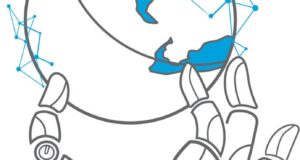
THE POWER OF mentoring, especially post pandemic and during economic uncertainty, is becoming more mainstream than ever before as a method to assist professionals who endure difficult circumstances, gain clarity, and navigate career changes. Mentoring, done well, has the capacity to create lasting impacts on people’s careers and lives.
Mentoring could be a game changer if you’re a CEO, an aspiring CEO or an association professional, and you are navigating the difficulties of a highly involved board, wrangling budgets due to substantially increased costs for core non-dues revenue such as conferences, if you recently joined your association from a smaller one or from the corporate/government sector, or even if you are simply looking to take your professional game to the next level.
A mentoring relationship is a safe space to test new ideas and objectively view your current circumstances as you talk through them with a trusted mentor who only has your best interests in mind. The opportunity to reflect is something that few association professionals have time to enjoy as they juggle multiple roles, so the opportunity to discuss governance or that problematic committee member is a golden time to unpack difficulties and chart a way forward. A mentor skillfully asks the right questions and can provide an anecdote or story to show you how this issue might be handled best.
From the other side, as a mentor, this is a great opportunity to give back to the community and do some self-reflecting on your own career trajectory. Imagine if you didn’t have that mentor who helped you, or what if you had a mentor during that period of time?
Mentorship can also be very powerful in more nuanced circumstances, including someone identifying as an underrepresented individual. A mentor serves as a safe space to express their experiences, and a skilled/trained mentor will also gently challenge assumptions to assist the mentee to stretch their initial goals into more aspirational goals, adding excitement and risk.
So why don’t more people seek out mentors as association professionals?
Two reasons: time and difficulty finding the “right” person.
Connecting a mentor and mentee in a relationship that otherwise may not have crossed paths often results in a transformational outcome for both parties. At the end of a program, first-time mentors often express how they received more from the relationship than the mentee and didn’t fathom that would be the outcome at the beginning. The stories of the mentee begin to help shape the mentor’s concept of how they could approach challenges in their own organization. This is a common, unexpectedly pleasing result of a program that focuses on DEI or promotes cross-cultural matches where the mentors are gaining insight from the relationship too and implementing changes in their behavior or organizational structure as a result of their learnings from the relationship.
Often the best time for a mentor is when extra time is least available! Time need not be an obstacle to the relationship forming. Often mentoring relationships are hour-long, monthly discussions. More complicated moments such as career transitions, navigating sweeping organizational changes or embarking on a brand-new career path are all great examples of when having a mentor can effectively support you navigate the turbulent moments.
The mentee sets goals at the outset of the relationship, and often these goals are what can be referred to as surface goals. As the rapport and trust builds between the pair, the mentee delves to more challenging depths and starts to set more aspirational goals. Common goals we see from association professionals are around operational improvements and working with a sounding board, allowing for a safe space to consider the approach.
Here are some stats showing how mentoring can positively affect a mentee’s circumstances:
Over a five-year period with 1,000 employees (Gartner 2006):
- 5% of employees who had a mentor attained a salary increase vs. only 5% of those who did not have a mentor
- Retention of mentees and mentors in their workplace were at least 20% higher than for those who did not engage with a mentor
CEOs in formal mentorship programs (Harvard Business Review 2015):
- 84% cited mentors helped navigate costly mistakes
- 84% became proficient in their role faster
- 69% made better decisions
Some other stats:
- Nine in 10 workers who have a career mentor say they are happy in their jobs (CNBC/SurveyMonkey Workplace Happiness Survey 2019)
- 67% of women rate having a mentor as extremely important to their career advancement (DDI)
- People with mentors are happier at their current jobs than those without (Olivet Nazarene University 2019)
Finding the right mentor can be daunting, but one of the best places to look is within your professional or trade association. The membership is a great community of skilled individuals with plenty of experience to share. Pioneering associations implement formally structured programs with training for mentors to be effective in their approach and for mentees to set goals effectively and drive the relationship. If your association doesn’t have a formal program, reach out to the membership or education team and ask if they can match you with a mentor.
Formally structured programs consider their matching criteria to create the best alignment between desired learnings of the mentee with the experience of the mentor. These might be around factors such as leadership development areas. Some examples of these development areas may include presentation skills, financial acumen, influencing, governance, etc. It might also be focused on area of specialization such as education, membership, marketing/communications, etc. Depending on the audience needs, the matching criteria will change to suit the needs of the association and its community.
Are you interested in being a mentor for association professionals or to be assigned a mentor from the profession or both? The TSAE mentoring program will launch in this fall with more information being made available later this month.
 Association Leadership TSAE: Connecting association professionals to peers, resources, information and inspiration.
Association Leadership TSAE: Connecting association professionals to peers, resources, information and inspiration.



